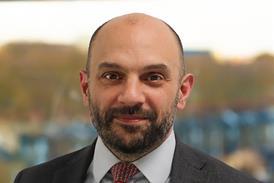A landmark Supreme Court ruling that tore up a decade-old settlement for a personal injury claim could lead to the reopening of more cases.
Joanne Dunhill, now 53, settled a claim for £12,500 after she suffered a head injury in 1999. The claim was settled in January 2003 without the insurer admitting liability.
But after Dunhill approached a new claimant firm, Manchester practice Potter Rees, she was able to argue in the High Court that she did not have mental capacity at the time of the settlement.
Her lawyers argue she is due significantly higher compensation and, rather than pursue a professional negligence claim, went back to the original settlement. A hearing will now decide the revised level of damages.
David Johnson, president of the Forum of Insurance Lawyers, said the unusual circumstances of the case mean a ‘deluge’ of similar appeals is unlikely, but solicitors will nevertheless be concerned.
‘Short of arranging an assessment of the claimant’s capacity in relation to every head injury claim they face, insurers will occasionally see instances where cases they thought had long been concluded are suddenly resurrected.’
Robert Tobin, partner at defendant firm Kennedys, said insurers could now be penalised through no fault of their own after legitimately settling a case. He said the judgment ‘opens the door to reopen any case which settled long ago without court approval where it is now discovered the claimant lacked the mental capacity to enter such a settlement agreement’.
Giving judgment in Dunhill v Burgin, Lady Hale, deputy president of the Supreme Court, said that although there was a need for finality in litigation and it was difficult to reopen cases, the underlying policy was that children and protected parties ‘require and deserve protection, not only from themselves but also from their legal advisers’.



























1 Reader's comment